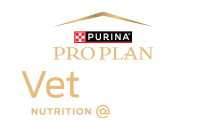|
When it comes to feeding your puppy, the most important factor is choosing a high quality diet. If your new family member is a large breed (greater than 50 pounds when fully grown), be sure to feed large breed growth diets beginning at 16 weeks of age, as these help prevent some bone diseases associated with our larger friends. If your new puppy is destined to be less than 50 pounds, feed them a standard, high quality growth diet.
Remember that not all dog foods are created equal. Some are extremely unhealthy and comparable to eating fast food (a dietary no-no) on a daily basis. Try to feed a high quality food such as Iams, Eukanuba, Purina Pro Plan, Royal Canin, or Science Diet. Avoid junk food diets such as Kibbles and Bits, Puppy Chow, Little Caesar’s, Ol’ Roy, and any grocery or pet store brands. When feeding super premium brands, you will notice that dogs have shinier coats and increased generalized health. This is because the quality, not the quantity, of ingredients and proteins allows the food to be utilized more efficiently. Because of greater utilization, a dog will require smaller amounts of food to fulfill nutritional needs. Also, decreased input equals decreased output.
As your puppy matures, their food is likely to change as well. Roughly at about age 1, your puppy will need to begin a maintenance diet. It is important to ask your veterinarian when to change to an adult food, because different breeds have different requirements. One of the most important goals in feeding your maturing dog is to keep them at an appropriate weight. We recommend twice daily, portion controlled feedings to help your dog maintain a healthy weight. Remember, being overweight is a key factor in developing diabetes, heart disease, and arthritis.
Puppies should be fed in meals rather than “free choice” for the following reasons:
- It is important to monitor the amount of food your puppy eats
- Mealtime feedings can prompt easier housebreaking
- Puppies that nibble throughout the day tend to become overweight. A fat puppy frequently makes a fat adult.
- If your puppy is not eating, you will see them refuse a meal
Due to the size of a puppy’s stomach the following feeding schedule is recommended:
- Set the bowl of food down for about 10-15 minutes, and pick up whatever the puppy doesn’t eat
- Four meals daily until three months old
- Three meals daily until five months old
- Two meals daily for maintenance
- Water available at all times
Do not feed your puppy table scraps!
- This leads to inappropriate begging behavior during meal time. Guests will be disgruntled that they cannot eat a meal in peace or unbothered.
- Many of our foods are high in fat (pork especially) and can cause vomiting, diarrhea, or pancreatitis.
- Many of our foods are toxic to dogs, such as chocolate, raisins, grapes, onions, garlic, fruit pits, and certain nuts
- Our food is not balanced to meet a dog’s daily requirements.
- This can lead to unwanted behavior such as knocking the trash over, jumping on the dining room table, stealing food from your plate, and inappropriate requests for attention.
|




